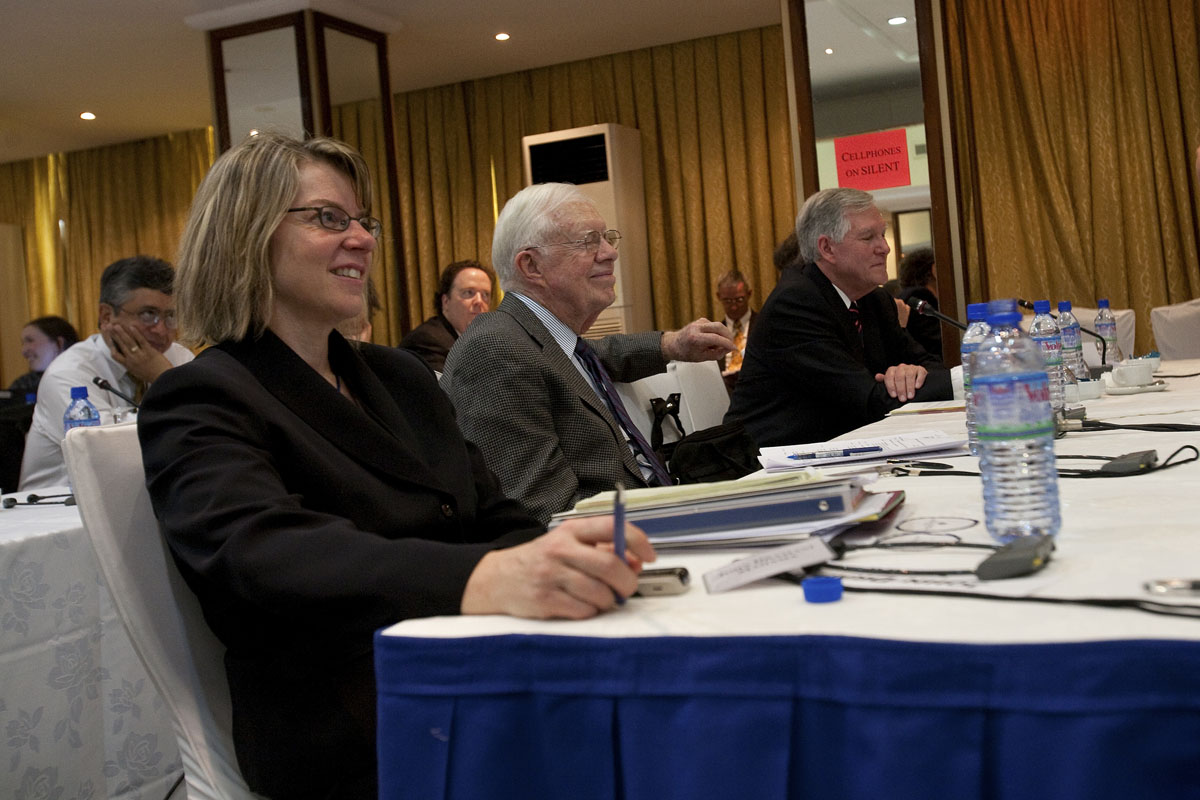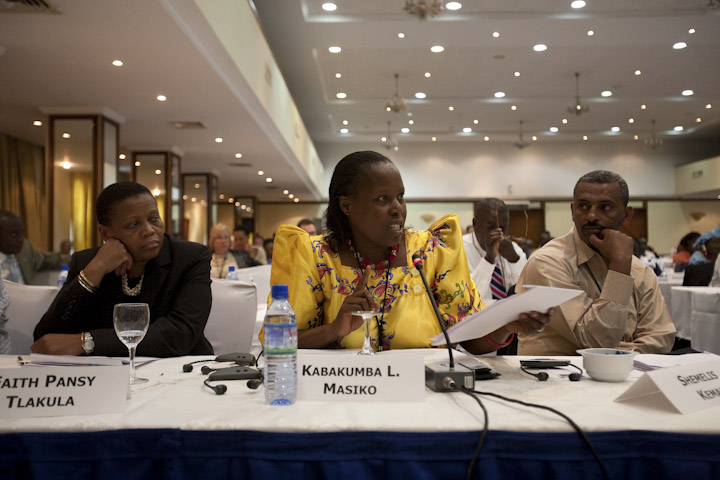The African Regional Conference on the Right of Access to Information began Sunday in Accra, Ghana. More than 130 participants arrived from 20 African countries as well as Mexico, Canada, India, Australia, and the United States. Even the blizzard could not stop our colleagues from Washington, D.C. Our Carter Center team had come days before to continue preparations for the conference, and was very excited for it to get underway.
The opening panel included the Ghanaian vice-minister of information, former U.S. President Jimmy Carter, World Bank Institute Vice President Sanjay Pradhan, and me. Following a video that we had developed, “Access to Information: Transforming Lives,” President Carter and Dr. Pradhan focused on the need for information as a fundamental human right, to increase citizen participation, hold government accountable, and as critical for good governance.

Laura Neuman, associate director for the Americas Program at The Carter Center and the access to information project manager; former U.S. President Jimmy Carter; and Dr. John Hardman, Carter Center president and CEO, at the access to information conference in Accra.
Throughout the afternoon, we heard from some of the 10 ministers and private sector and civil society representatives participating in the proceedings. Although it already had been a long day, we still had one more special event. In the evening, we enjoyed the conference dinner on the lawn of the hotel, facing the ocean. A Ghanaian band played local music with traditional instruments.
During the dessert course, Stephen King from Omidyar Network introduced President Carter. Following a few brief words about the day, President Carter turned the microphone over to Carter Center board member Charlayne Hunter-Gault, who spoke of the importance of information and documents in helping her integrate the University of Georgia. Her admittance to university had been denied with a claim that there was no room in the dormitory. Charlayne and her young attorney friend suspected that the real reason was discrimination. To prove their case, they reviewed every application to the dorms and found that a white woman in exactly the similar position as Charlayne, a black woman, had been accepted. This was enough for the federal courts in 1961 to order the University of Georgia to admit her and began the crumbling of the segregation walls of education throughout Georgia. This was an inspirational example of the power of information.
The evening ended with more music and our thanks and good-bye to President and Mrs. Carter, Dr. John Hardman, and Carter Center Board Member Richard Blum, as they headed to Sudan. Tomorrow, the conference will continue with working group discussions.
Read more about the conference.

Kabakumba L. Masiko (center), minister of information and national guidance of the Government of Uganda, addresses the conference. Seated next to her are participants Faith Pansy Tlakula (left) of The Gambia, special rapporteur on freedom of expression and commissioner of the African Commission on Human and Peoples Rights, and Shemelis Kemal (right), deputy minister of Ethiopia’s communications affairs office.
Please sign up below for important news about the work of The Carter Center and special event invitations.